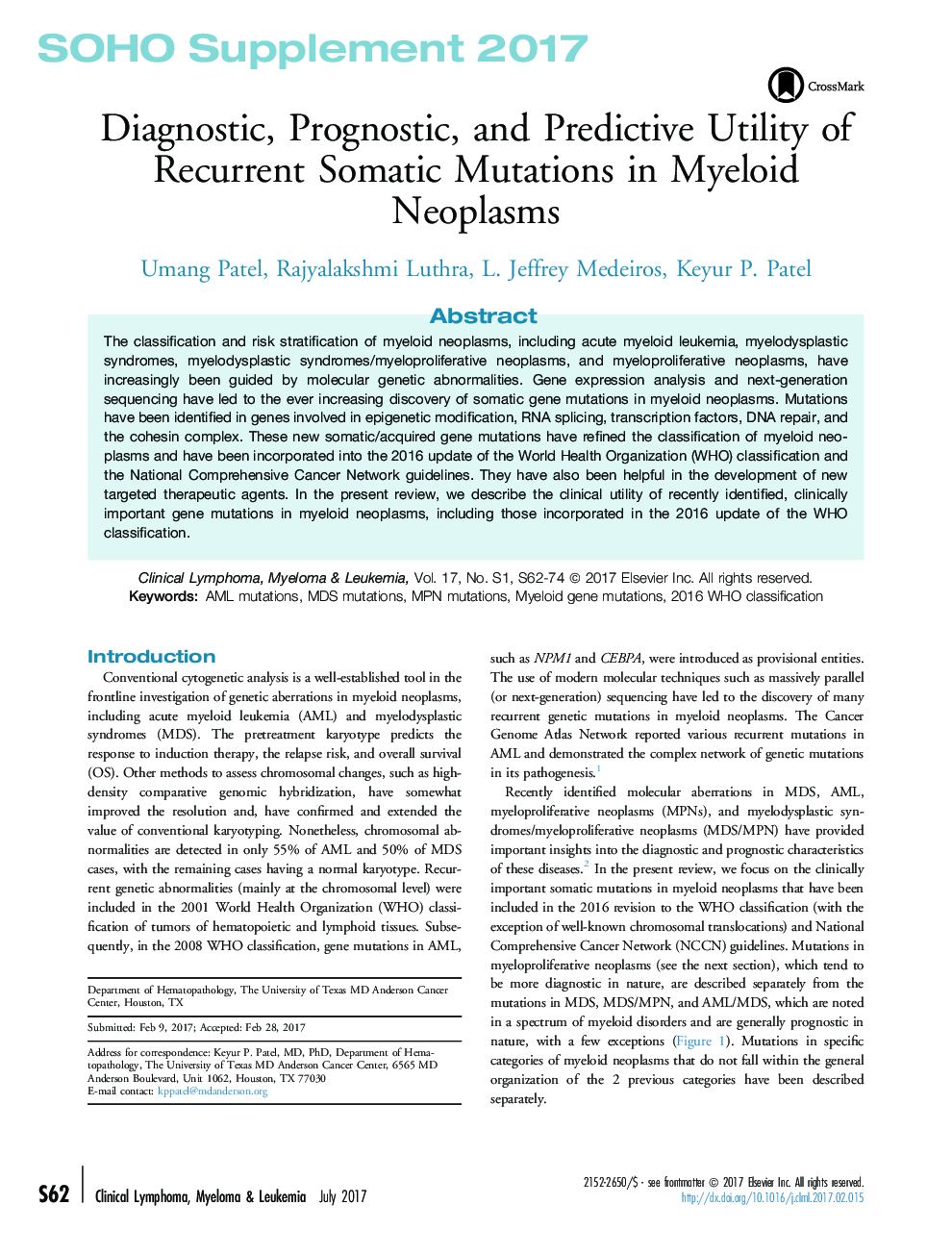| Article ID | Journal | Published Year | Pages | File Type |
|---|---|---|---|---|
| 5582078 | Clinical Lymphoma Myeloma and Leukemia | 2017 | 13 Pages |
Abstract
The classification and risk stratification of myeloid neoplasms, including acute myeloid leukemia, myelodysplastic syndromes, myelodysplastic syndromes/myeloproliferative neoplasms, and myeloproliferative neoplasms, have increasingly been guided by molecular genetic abnormalities. Gene expression analysis and next-generation sequencing have led to the ever increasing discovery of somatic gene mutations in myeloid neoplasms. Mutations have been identified in genes involved in epigenetic modification, RNA splicing, transcription factors, DNA repair, and the cohesin complex. These new somatic/acquired gene mutations have refined the classification of myeloid neoplasms and have been incorporated into the 2016 update of the World Health Organization (WHO) classification and the National Comprehensive Cancer Network guidelines. They have also been helpful in the development of new targeted therapeutic agents. In the present review, we describe the clinical utility of recently identified, clinically important gene mutations in myeloid neoplasms, including those incorporated in the 2016 update of the WHO classification.
Related Topics
Health Sciences
Medicine and Dentistry
Anesthesiology and Pain Medicine
Authors
Umang Patel, Rajyalakshmi Luthra, L. Jeffrey Medeiros, Keyur P. Patel,
